The project
Global access to (in)fertility care
The Walking Egg believes that fertility care is a neglected aspect of family planning in many countries worldwide. Right from the start in 2010, we opted for a multidisciplinary and global approach to realise affordable and accessible infertility programmes.
In corporation with ESHRE (European Society of Human reproduction and Embryology) and WHO (World Health Organisation), we gather medical, social and economical scientists and experts along with artists to discuss and work together towards our goal.
We aim to strengthen fertility care through innovation and research, advocacy and networking, training and capacity building, and service delivery.
Research and innovation
There's a need for research on social, cultural, ethical, religious and juridical aspects of infertility in resourcepoor countries. What are pathways to healthcare and treatment access? What are the financial and economical consequences of infertility treatment compared to the actual situation? We also aim to initiate and expand an international network of social science research (in broad sense) in these fields.
In order to make fertility care more affordable in developing countries, effective, cheap and safe stimulation schemes for intrauterine insemination (IUI) and in-vitro fertilization (IVF) need to be established. A review of the literature and feasibility studies have to be performed to examine the value of these protocols in resource-poor settings. A major challenge is to reduce costs of laboratory procedures, namely fertilization and culture of eggs and embryos. Different options and approaches have been developed or are presently being field-tested with very promising results.
Advocacy and networking
Global access to fertility care can only be implemented and sustained if it is supported by local policy makers and the international community. Many international organizations have already expressed their desire to collaborate including WHO, ESHRE and ISMAAR (International Society for Mild Approaches to Assisted Reproduction). We will also need to the media, patient organizations and interested politicians to change the existing moral and socio-cultural beliefs that are isolating and ostracizing infertile couples.
Training and capacity building
Regular training courses on the diagnosis and prevention of infertility in developing countries have to be organized including endoscopic surgery, the clinical aspects of IUI and IVF and the laboratory aspects of IVF/ICSI. Training, quality control, regular audit and systems of accreditation and registration should be implemented in order to maintain appropriate standards of care.
Service delivery
The ultimate aim is to establish high-quality and affordable fertility services wherever needed. Diagnostic and therapeutic procedures and protocols should be affordable, effective, safe and standardized. Ideally, infertility management should be integrated into sexual and reproductive health care programmes.
What is The Walking Egg?
In March 2010, The Walking Egg non-profit organization was founded by four members: Annie Vereecken, Rudi Campo, Willem Ombelet and Koen Vanmechelen.
What is the history of The Walking Egg?
In 1993, the international meeting for ‘Andrology in the Nineties’, held in Genk, Belgium, attracted more than 700 clinicians and scientists from more than 40 different countries, all of whom specialized in infertility. It also resulted in the meeting of artist Koen Vanmechelen and fertility specialist Willem Ombelet. Although they came from two very different domains, these domains both developed from a sense of amazement and a desire to understand human identity. The contact between the scientist and the artist resulted in an enigmatic glass egg with the legs of a chicken: ‘The Walking Egg’. Three years later, in 2000, the first issue of ‘The Walking Egg’ magazine was published. It was a unique blend of science, art and philosophy, to name but a few of its perspectives. From the start, the concept sounded like a real program: to bridge the gap between science and art and alter traditional discourse between two disciplines believed to be in opposition with each other. The next two years were spent brainstorming, working, travelling, discussing, talking and exploring. The outcome of this artistic-scientific cross-fertilization was expressed in six issues of ‘The Walking Egg magazine, an international journal which was distributed to infertility specialists worldwide. On the occasion of the opening of the fully renovated fertility department of the Genk Institute for Fertility Technology in August 2006, the artistic project ‘Born’ was exhibited. A general concept focusing on the egg, it remains on permanent display in the fertility department. In December 2007, a scientific-artistic project was set up in Arusha, Tanzania, in the shadow of Mount Kilimanjaro. It is an environment where climatological and hygienic conditions are not the most favorable. It represented the start of a focus on infertility and childlessness in developing countries, in cooperation with the European Society of Human Reproduction and Embryology (ESHRE) Special Task Force on ‘Developing countries and infertility’.
What is the philosophy of The Walking Egg?
Creativity and beauty are the junctions where art and science meet. Early on, Koen Vanmechelen and Willem Ombelet recognized both disciplines have a complementary relationship. The study of the inner world is incomplete without that of the outer. In the future they aim to organize debates between scientists, politicians, artists, philosophers, etc. on topics associated with human reproduction, and more specifically, on the topic of childlessness in countries with limited resources.
Who is the Walking Egg?
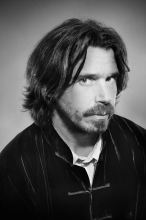
Koen Vanmechelen was born in St-Truiden Belgium in 1965. He lives in Meeuwen-Gruitrode, Belgium. Koen started his Cosmopolitan Chicken Project (CCP) in the late 1990s. By crossbreeding chickens from all over the planet he tries to create a cosmopolitan chicken that combines different traits from the original breeds. This genetic diversity is a model for mixing the genome of human population groups. So far he has realized 13 generations of crossbreds. Vanmechelen uses this genetic diversity of chickens as a metaphor, to explain certain relevant social phenomena. He is renowned for ‘crossing borders’ to achieve mutual ‘cosmo-political’ understanding. ‘Nothing is as beautiful as joining with other cultures and taking energy from the act.’ The artist has developed a unique mix of different media to work around this theme, often in collaboration with scientists. His works range from highly expressive paintings and drawings, to photography, videos, installations, works in glass and a recurring wooden sculpture. All these different modes of expression are linked by the chicken and the egg. Over the years they have become an important symbol, enabling the artist to make a connection to scientific, political, philosophical and ethical domains and issues. The intricate artistic-philosophical system he developed is the subject of debates, discussions and lectures the artist organizes or takes part in to shape his philosophical universe. From Vanmechelen’s central ideas, forming the Cosmopolitan Chicken Project (CCP), three major directions have developed. They have linked themselves to other domains: the scientific, social and philosophical. The Walking Egg rose from the mutual curiosity shared between two domains, each of which begin with a sense of amazement and a compulsion to understand the human identity - art and the medical sciences, or in this case, the field of fertility (Willem Ombelet). Beside the creation of an illustrated magazine (The Walking Egg), the cross-over between the CCP and Willem Ombelet’s fertility project led to an artistic-scientific project in Arusha, Tanzania. It represented the start of a focus on (in)fertility in developing countries. Art also contributes to this important project of ‘Universal access to reproductive care, including infertility’, coordinated by Willem Ombelet. Koen Vanmechelen will be creating a series of numbered reproductions of his work, each of which is to be sold for the price of one fertility treatment. According to the artist, each individual fertilization will combine the story of an infertile woman with the owner of a piece of art. Learn about the two other projects of the Cosmopolitan Chicken Project View Koen Vanmechelen’s C.V.
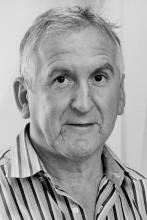
Willem Ombelet (MD, PhD) was born in Leuven in 1954 and qualified in medicine at the University of Leuven in 1979. He completed his training in Obstetrics and Gynecology in Bruges and Pretoria (South Africa). He is the founder of the Genk Institute for Fertility Technology and was chairman of seven ‘Andrology in the Nineties’ meetings. In 1998 he obtained his PhD degree at the University of Leuven with a thesis on ‘The value of sperm morphology and other semen parameters in diagnosis and treatment of human subfertility’. He became the Head of the Department of Obstetrics and Gynecology of the ZOL Hospitals in Genk in 1999. Willem Ombelet was the President of the Flemish Society of Obstetrics and Gynecology (VVOG) from 2001 until 2004. Since 2002 he has been the chairman of the Scientific Committee of the VVOG. Until 2008 he was the editor of ‘Gynaïkeia’, the official journal of the Flemish Society of Obstetrics and Gynecology. He has also been a board member of the Belgian College of Reproductive Medicine since 1999 and a board member of the Belgian Society of Reproductive Medicine (BSRM) since 2008. He is a consultant (Reproductive Medicine) at the University of Hasselt and at the University of Ghent. He has authored more than 80 international peer-reviewed articles and is the recipient of two international awards. He is the (co-)editor of 16 books. Since 2006, Willem Ombelet has been the coordinator of the ESHRE Special Task Force on ‘Developing countries and infertility’. It aims to make infertility diagnosis and treatment in developing countries more affordable and more accessible. The organization of the expert meeting on the topic of ‘Developing countries and infertility’ in Arusha, Tanzania, from 15 to 17 December 2007, was the first project run by the special task force. While recognizing the importance of prevention and education, Willem Ombelet believes that for reasons of social justice, infertility treatment in developing countries requires greater attention at national and international levels. Together with Koen Vanmechelen he has transgressed the boundaries of conventional medical practice to delve into unexplored dimensions and affinities with other medical disciplines, as well as with the world of art.
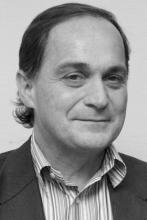
Rudi Campo is currently President of the European Society for Gynaecological Endoscopy (ESGE), member of the special task force ART in developing countries and of the Special Interest Group reproductive surgery of the European Society for Human Reproduction and Embryology (ESHRE). Furthermore, he is member of the standing committee for training and assessment of the European Board & College of Obstetrics and Gynaecology (EBCOG-SCTA).These mandates create the opportunity to elaborate the European field of reproductive medicine, which has always been one of his major points of interest. Besides his research on technologies for assisted reproduction, his attention goes to endoscopic surgery, especially training and education. For that purpose, he founded the European Academy of Gynaecological Surgery (EAGS) that aims to encourage the exchange of clinical experience, scientific thoughts and investigation among gynaecological endoscopists and practitioners and to establish an apolitical body for scientific research and standardization in endoscopy. Being, besides a trained laparoscopist, one of the international recognized hysteroscopic surgeons with a major experience in uterine reconstructive surgery and hysteroscopic operative myometrial exploration, he can contribute to the elaboration of the complete range of endoscopic techniques. As Director of the EAGS and Chair of the EBCOG simulation consortium, and being able to communicate in several European languages, he delivers a substantial contribution to endoscopic training and education worldwide.
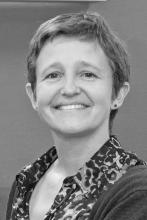
Nathalie Dhont, born in Belgium (1971) studied Medicine in Ghent (Belgium) after which she continued her postgraduate training as a gynaecologist with additional years of training in the UK and the Netherlands. She went on to live and work for 8 years in sub-Saharan Africa, first in Malawi then for almost 7 years in Rwanda. She worked as a gynaecologist and as technical advisor for several international organizations (Luxemburg Bilateral Cooperation, EGPAF, Projet Ubuzima). In Rwanda she set up a research project in collaboration with the Ghent University International Center for Reproductive Health, the international NGO Projet Ubuzima and the Kigali University Teaching Hospital. The main aim of this project was to investigate the clinical, epidemiological and socio-cultural aspects of infertility in resource-poor countries, which formed the subject of many published articles and resulted in a PhD thesis defended at the University of Ghent (April 2011). Currently she works as a gynaecologist with special interest in reproductive medicine in ZOL hospitals in Genk. She is member of the board of directors of The Walking Egg and member of the ESHRE Task Force ‘Infertility in developing countries’. She is married and mother of three daughters.
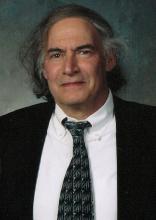
Jonathan Van Blerkom is a Professor in the Department of Molecular, Cellular and Developmental Biology at the University of Colorado, where he received his PhD in 1974. Since 1982 he has also been actively involved in human IVF, and is currently the IVF Laboratory Director at Colorado Reproductive Endocrinology in Denver, Colorado. His academic studies have focused on molecular and cellular aspects of early mammalian development including human follicles, oocytes and embryos, which have resulted in the publication of well over 100 original research articles, in addition to numerous reviews and coauthored and edited books on early mammalian development, including the human. He has been a member of Editorial Boards for important journals in the area of developmental biology and reproductive medicine and currently serves as Section Editor of Reproductive BioMedicine Online, Associate Editor of the Journal of Assisted Reproduction and Genetics, and is one of the Editors-in-Chief of Zygote. He is an invites speaker at numerous international conferences and symposia. His current clinically related research centers on the role(s) of mitochondria in early development, and the molecular organization of the oocyte and embryo plasma membrane as related to developmental competence. Dr. Van Blerkom developed the simplified culture system that is the centerpiece of the Walking Egg Project’s intent to provide accessible and affordable advanced infertility treatment in developing countries. He is a member of the Board of Directors of the Walking Egg Foundation and continues to undertake research that will further develop the goals of this project.
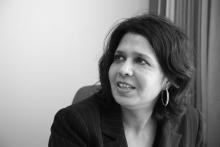
Geeta Nargund is a Senior Consultant Gynaecologist and Lead Consultant for Reproductive Medicine services at St George’s University Hospital, London and the Founder and Medical director of Create Fertility, UK.
She is the President of the International Scientific Society for Mild Approaches in Assisted Reproduction (ISMAAR -www.ismaar.org). Through her leading role, she has been the voice for women’s choice, health and education in the field of Assisted Reproductive Technology (ART) globally. She promotes safer, less-drug-orientated and accessible ART.
She is was previously a member of the WHO (World Health Organisation) Expert sub-group on infertility guidelines. She was also the Chair of the ESHRE Special Task Force on “Mild ART”. She is a regular invited speaker at national & international scientific conferences.
She has published more than 60 peer-reviewed scientific papers and several book chapters in the field of reproductive medicine. She is a pioneer in the field of Natural and Mild IVF and Advanced Ultrasound Technology in Reproductive Medicine. She is an accredited trainer for Infertility and Gynaecological Ultrasound special skills modules by the Royal College of Obstetricians & Gynaecologists (RCOG) London and British Fertility Society (BFS). She pioneered the use of follicular Doppler in assessing “Egg quality” in humans. She also published the first scientific paper on “Cumulative live birth rates with Natural cycle IVF”.
She is a Visiting Professor at several universities. She is actively involved in research in making IVF more natural, accessible and safer for women and children. She is the Founder and Chief Executive of the UK National charity, Create Health Foundation. This Charity funds and supports women’s health education in the UK. She introduced Fertility Education in London secondary schools in 2016.
She is an elected Trustee on the Board of British Red Cross and a Director of the London Emergencies Trust. She has previously served as London Vice President for British Red Cross and a Senior Governor of primary and secondary state schools in London.
She is a regular speaker at Westminster Health Seminars on Health and Social care in the UK. She has also been an invited speaker at women’s health conferences along with the members of UN.
She is also a member of Guild of Health Writers UK. She cares deeply about and has been actively involved in charities promoting education, women’s health and development, equality and social mobility in the last 15 years.
She has won several awards for her charity and community work and for promoting women’s empowerment and health.